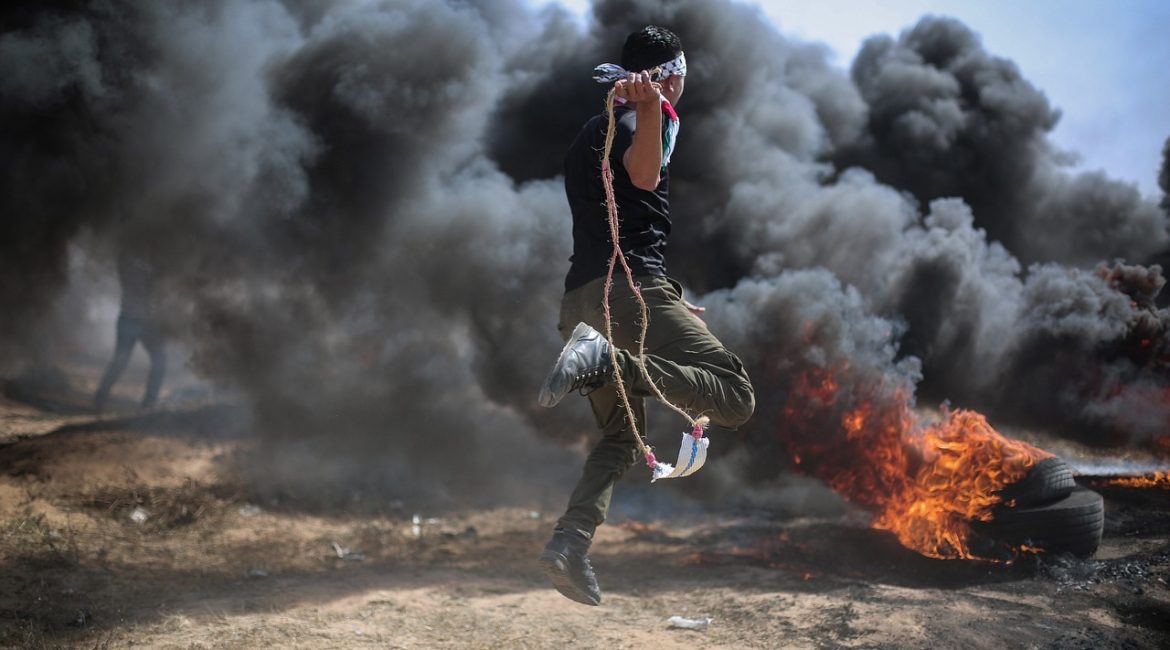The war is currently raging in Gaza between the Israeli army and the Hamas movement places the region before the following alternative: either the ongoing negotiations in Qatar and Oman succeed in defusing the crisis, or they fail and, in this case, Israeli Prime Minister Benjamin Netanyahu risks precipitating the entire region into a total war.
Time is running out and Israel continues its ground war, ignoring the UN General Assembly's approval of a draft resolution calling for an immediate and permanent humanitarian ceasefire in Gaza. Israel and the United States reject any plans for a truce before Netanyahu completes the "strategy" he has put in place to restore the credibility of the army and intelligence services, and to rehabilitate himself politically. He is, in fact, accredited responsible for Israel's debacle on October 7, when Hamas launched operation "Al-Aqsa Flood", firing missiles at Tel Aviv, penetrating the settlements and left in deaths and destruction, kidnapping a considerable number of hostages, estimated at 230.
Developments on the ground were followed by meetings held in Qatar and Oman, aimed at ending military operations, releasing all hostages, and beginning negotiations for a comprehensive solution.
According to Arab officials, the conflicting parties participate in these meetings in the presence of American and Iranian security officers. The negotiators do not agree on the agenda or on the priorities to be given to some files. In this context, Netanyahu insists on the “military end of Hamas” and the evacuation of its fighters from Gaza. As for the Palestinians, they refuse any "transfer of population", and Egypt is also opposed to the idea of transferring Palestinians from Gaza to Sinai.
According to well-informed Western sources, several scenarios are being studied, including a humanitarian truce, a cessation of military operations, the delivery of humanitarian aid, the release of all hostages, the military evacuation of Hamas from Gaza , and the deployment of an Arab force inside the territorial strip to maintain order, supervise the distribution of aid, and ensure the elimination of the tunnels. Then will come the reconstruction process and the permanent ceasefire stage. All this should go hand in hand with the start of negotiations and plans for political solutions for a just and comprehensive peace.
This scenario faces opposition from Netanyahu to the establishment of an independent Palestinian state with Jerusalem as its capital. He is supported by American political forces, which make any solution impossible outside of the two-state option, while Netanyahu insists on the State of Israel and the integration of Palestinians within it, as it was the case for the Palestinians in 1948, with Arab deputies in the Knesset.
If Israel rejects the two-state solution, the Arabs threaten to put an end to normalization and abandon the Abraham Accords. But Washington, before "the Flood of Al-Aqsa", had bet on normalization between the Saudi Arabia and Israel before the end of this year. Therefore, Washington cannot abandon this solution, taking into consideration that American President Joe Biden is preparing to run again for president in a year, betting on the card of normalization and peace in the region, which he considers his major asset against his Republican opponent, who could be Donald Trump.
At the same time, and in an effort to find a solution to the ongoing war, the United States is holding negotiations with the Islamic Republic of Iran to discuss the nuclear issue and push it to return to the agreement, to reduce its enrichment in uranium and renouncing nuclear weapons.
According to certain reports, it seems that Iran prefers to keep the nuclear issue as the last point of negotiations with Washington in order to give priority to the Palestinian question, through the two-state solution. This position would be contested by the United States, which prefers that its negotiations with Iran focus first on nuclear issues, before tackling other issues.
Palestinian sources say that if Netanyahu persists with his plan to annihilate Hamas, destroy Gaza and hand that territory over to the Palestinian Authority, it will have negative repercussions, opening new fronts with obstructionist countries, as Lebanon, Syria, Iraq, Yemen, and the West Bank. This situation could drag the region into a global war whose beginning is known, but not the end.

